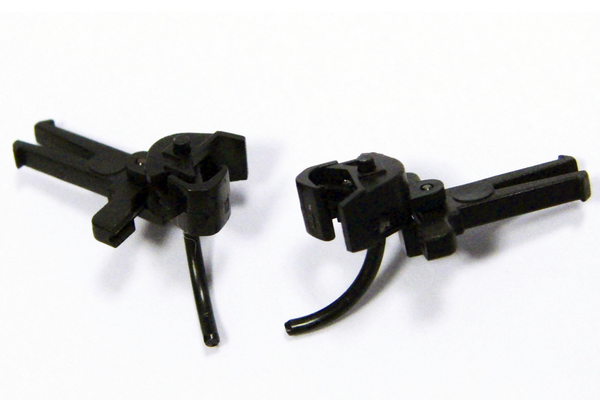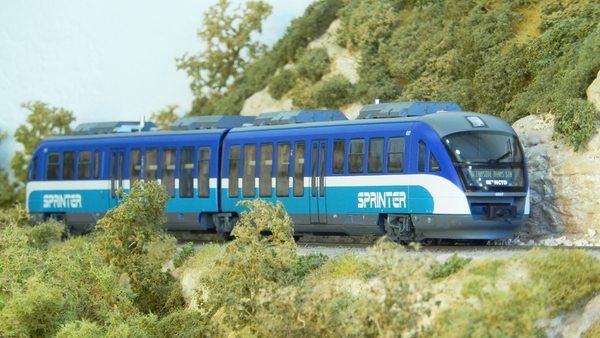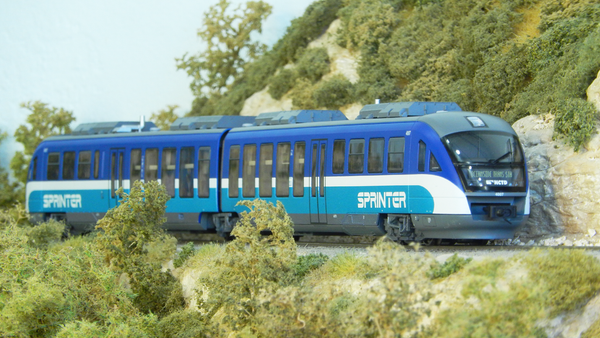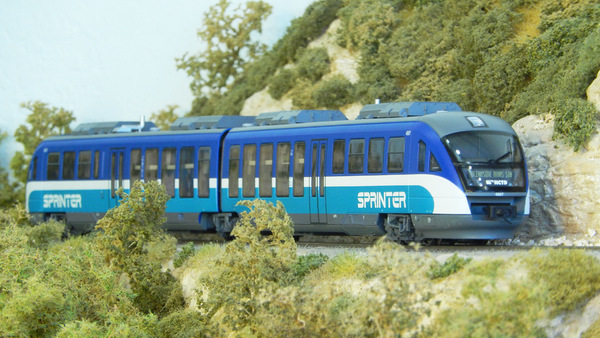97456 D&RGW #4003 Diesel Loco (HO-Scale)
$299.99
97456 Krauss-Maffei ML4000 Diesel Loco D&RGW #4003, Non-Sound (HO-Scale)
Note: Photos show the three different road numbers. See product description for road number information.
Features:
- RP25 wheels
- Silky-smooth & powerful PIKO Mechanism for great low-speeds and precise running
-
Period-specific details
- PIKO knuckle couplers
- DCC-Ready (on non-sound versions)
-
To convert to DCC/Sound, use the ET97442-118 American KM Sound Decoder, together with the separate 56334 Speaker. For DCC without sound, the ET97442-118 Sound Decoder is still recommended, without the speaker. Only this decoder comes factory-programmed to make all the lighting functions work correctly. Other PluX22 decoders can be used, but will require considerable advanced-level programming for the lighting.
(The 56627 decoder & speaker kit provides European-style decoder operation, not recommended for American DCC systems.)
A Little About The Prototype...
Krauss-Maffei of Germany worked closely with the Southern Pacific and the Denver & Rio Grande to develop a revolutionary new diesel-hydraulic locomotive. At the start of the 1960s, these beasts packed 4000 horsepower, a feat that would not be matched by American Diesel locomotive builders for many years. Typical American diesels of the time had only 2000 HP or less. The idea of replacing two locos with one in mainline service had great appeal. The hydraulic transmissions were an effort to eliminate the complexity and maintenance issues of electrical traction motors and all their related controls.
Three “Prototype” locos were delivered to SP in 1961 and three to D&RGW. These cab locos with their rounded noses and full carbodies looked very different than the slightly larger batch of “Series” hood locos later delivered to the SP. Besides the very different paint schemes, the most notable visual difference between the SP and D&RGW As-Delivered locos was the big “barrel” headlight housing on the top of the nose of the D&RGW units. This housed the moving Gyralite safety lights.
Upon delivery, both roads promptly put their KMs to work in the hardest possible service, with dynamometer cars often following to test every aspect. Performance was impressive, but teething problems quickly developed. German technicians sent over to the SP and D&RGW worked to address issues and train local maintenance crews. Over time, many modifications were made and reliability improved, but in the end, the locos may simply have been victims of a difference of cultures. Technology that was commonplace and successful in European railroads just did not mesh well with American railroad operation and maintenance practices. None of the six “Prototype” locos survived the decade, but they made an indelible mark with many thousands of fans.
























